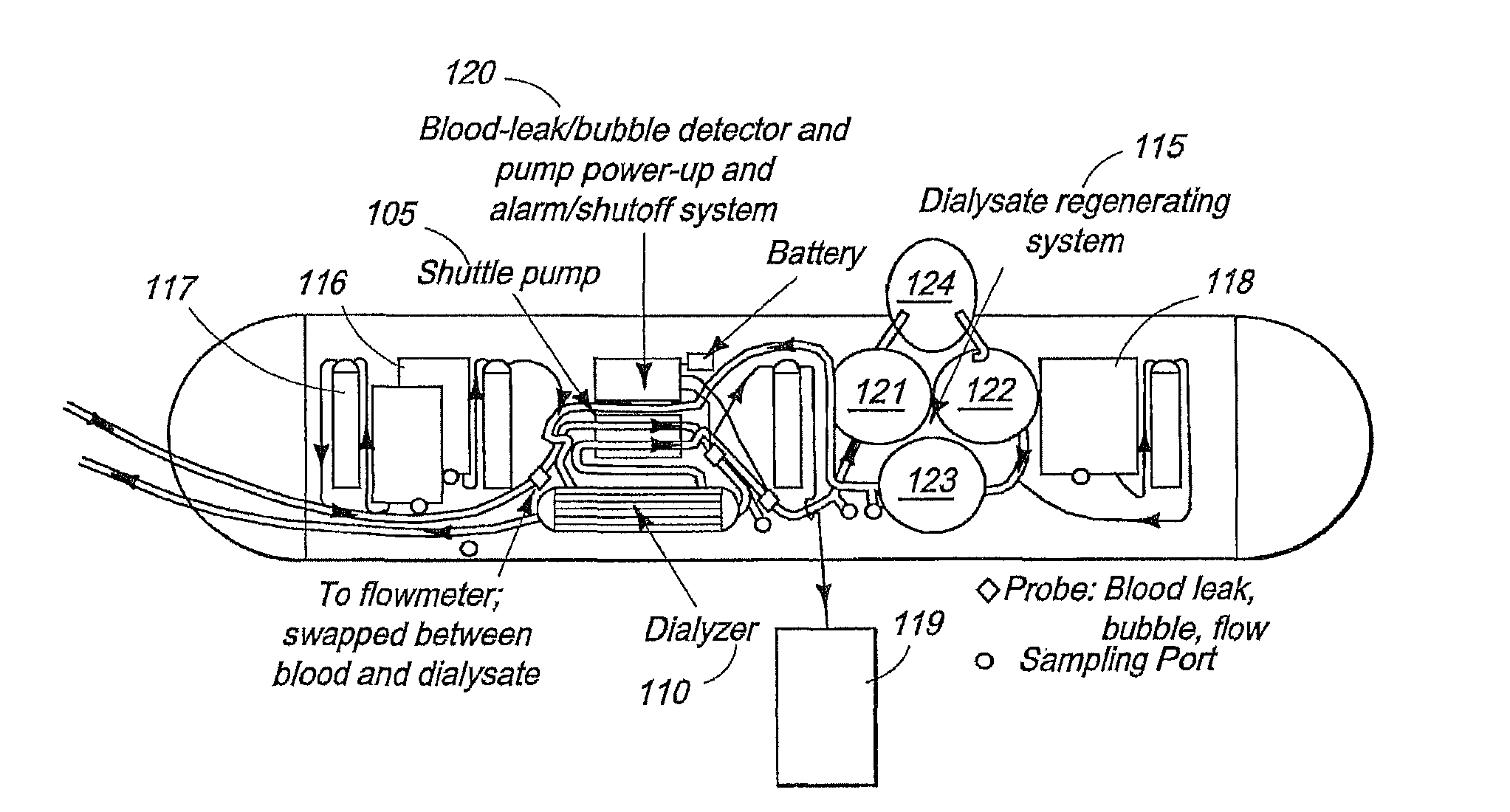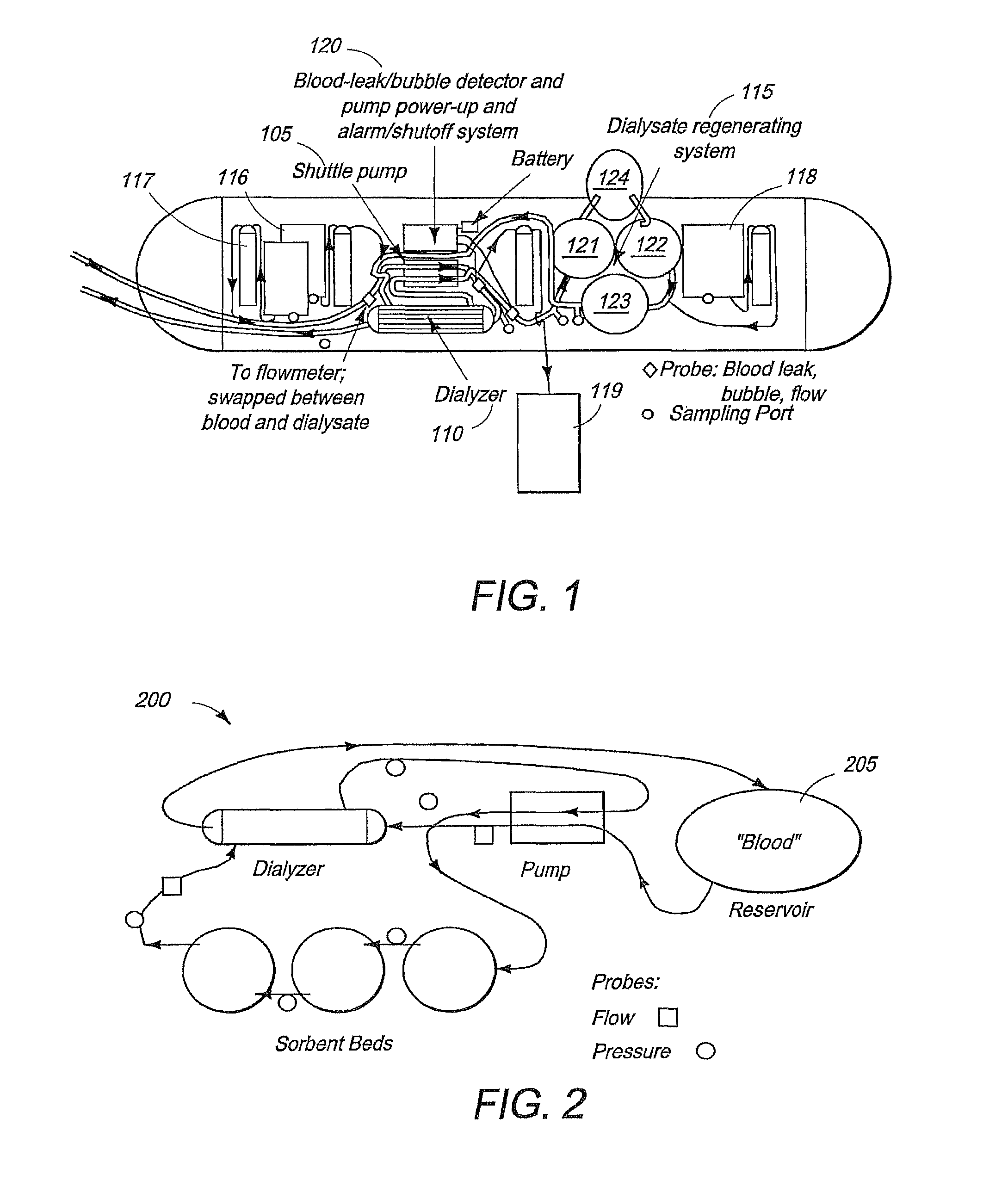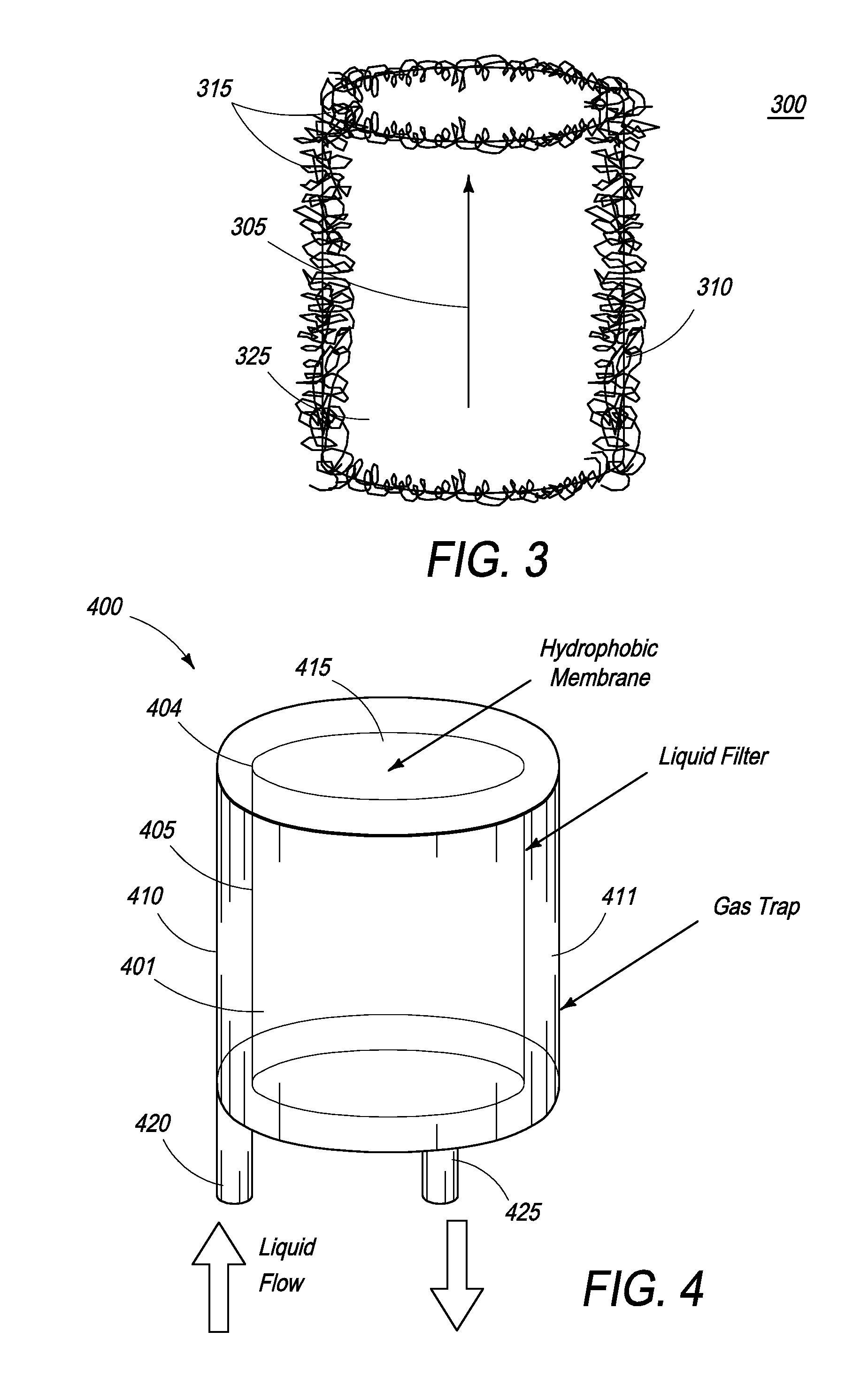Carbon dioxide gas removal from a fluid circuit of a dialysis device
a dialysis device and fluid circuit technology, applied in the field of hemodialysis, to achieve the effect of efficient venting or removal of carbon dioxid
- Summary
- Abstract
- Description
- Claims
- Application Information
AI Technical Summary
Benefits of technology
Problems solved by technology
Method used
Image
Examples
performance example 1
[0040]Various configurations of the dialysis device 100 of FIG. 1 were tested to evaluate their operational performance and, in particular, the gas removal capability of the degassing device 124 and 520. Referring to FIG. 2, after priming the dialysis device with saline, the dialysis device 200 was connected to a large (40- to 80-liter) reservoir 205 of properly formulated aqueous solution (referred to as “blood” here, made out of fresh deionized water or spent human dialysate) accurately mimicking end stage renal disease (ESRD) typical human blood. This “blood” was designed to approximate actual human composition and contained about 50 mg / dL of BUN (Blood Urea-Nitrogen), 10 mg / dL of creatinine, 5 mmol / L of K, among other solutes. No additives were provided and no ultrafiltration was performed; however, dialysate pH was maintained at an optimal value by a manual injection of sodium bicarbonate in order to measure its effect on the volume of CO2 produced. “Blood” and dialysate sample...
PUM
| Property | Measurement | Unit |
|---|---|---|
| flow rates | aaaaa | aaaaa |
| flow rates | aaaaa | aaaaa |
| thick | aaaaa | aaaaa |
Abstract
Description
Claims
Application Information
 Login to View More
Login to View More - R&D
- Intellectual Property
- Life Sciences
- Materials
- Tech Scout
- Unparalleled Data Quality
- Higher Quality Content
- 60% Fewer Hallucinations
Browse by: Latest US Patents, China's latest patents, Technical Efficacy Thesaurus, Application Domain, Technology Topic, Popular Technical Reports.
© 2025 PatSnap. All rights reserved.Legal|Privacy policy|Modern Slavery Act Transparency Statement|Sitemap|About US| Contact US: help@patsnap.com



